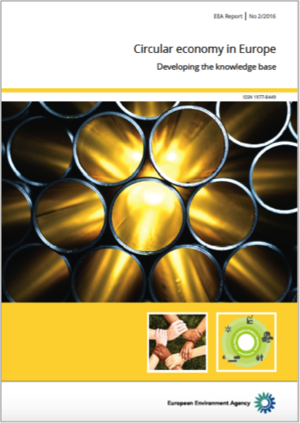
Circular Economy in Europe - Developing the knowledge base
Unlike the traditional take-make-consume-dispose approach, a circular economy seeks to respect environmental boundaries through increasing the share of renewable or recyclable resources while reducing consumption of raw materials and energy. It requires fundamental changes throughout the value chain, from product design and production processes to new business models and consumption patterns. Approaches such as eco-design, sharing, re-using, repairing, refurbishing and recycling will play a significant role in fostering the transition towards a more circular economy in Europe.
But what are the benefits of a more circular economy and how can these, as well as potential negative effects, be assessed? What needs to be done to turn theory into practice, and what barriers need to be overcome? And how can current policies, alongside business and civil society initiatives, contribute to the transition? The current knowledge base is rather fragmented and better insight is needed into various aspects of system dynamics, such as production structures, consumption dynamics, financial mechanisms, and triggers and pathways for technological and social innovations.
Through a series of circular economy reports, the European Environment Agency (EEA) with the support of the European Topic Centre on Waste and Materials in a Green Economy (ETC/WMGE) - of which the CSCP is partner - aims to provide answers to some of these questions and bridge existing knowledge gaps. The first report of this series published on 18 January 2016 draws attention to both the benefits and challenges of such an economic transition, describing possible ways to measure progress and highlighting the areas where more attention is required.
The full report can be downloaded here
For more information please contact:
Francesca Grossi • Project Coordinator
+49 (202) 459 58-10 • francesca.grossi@scp-centre.org
